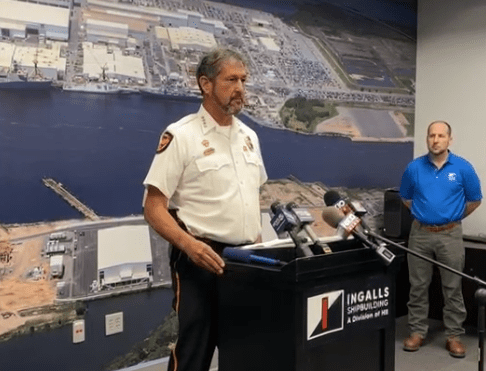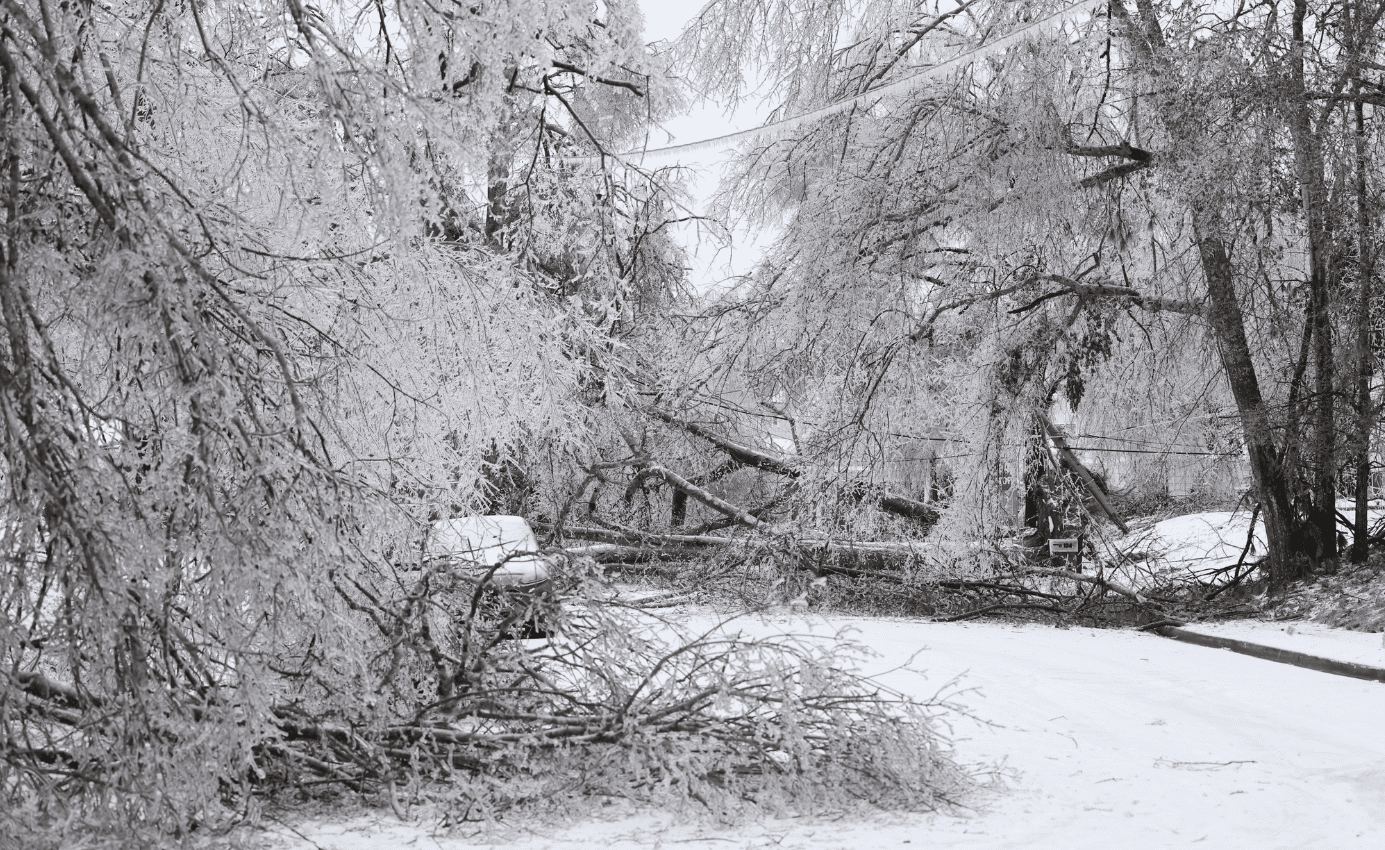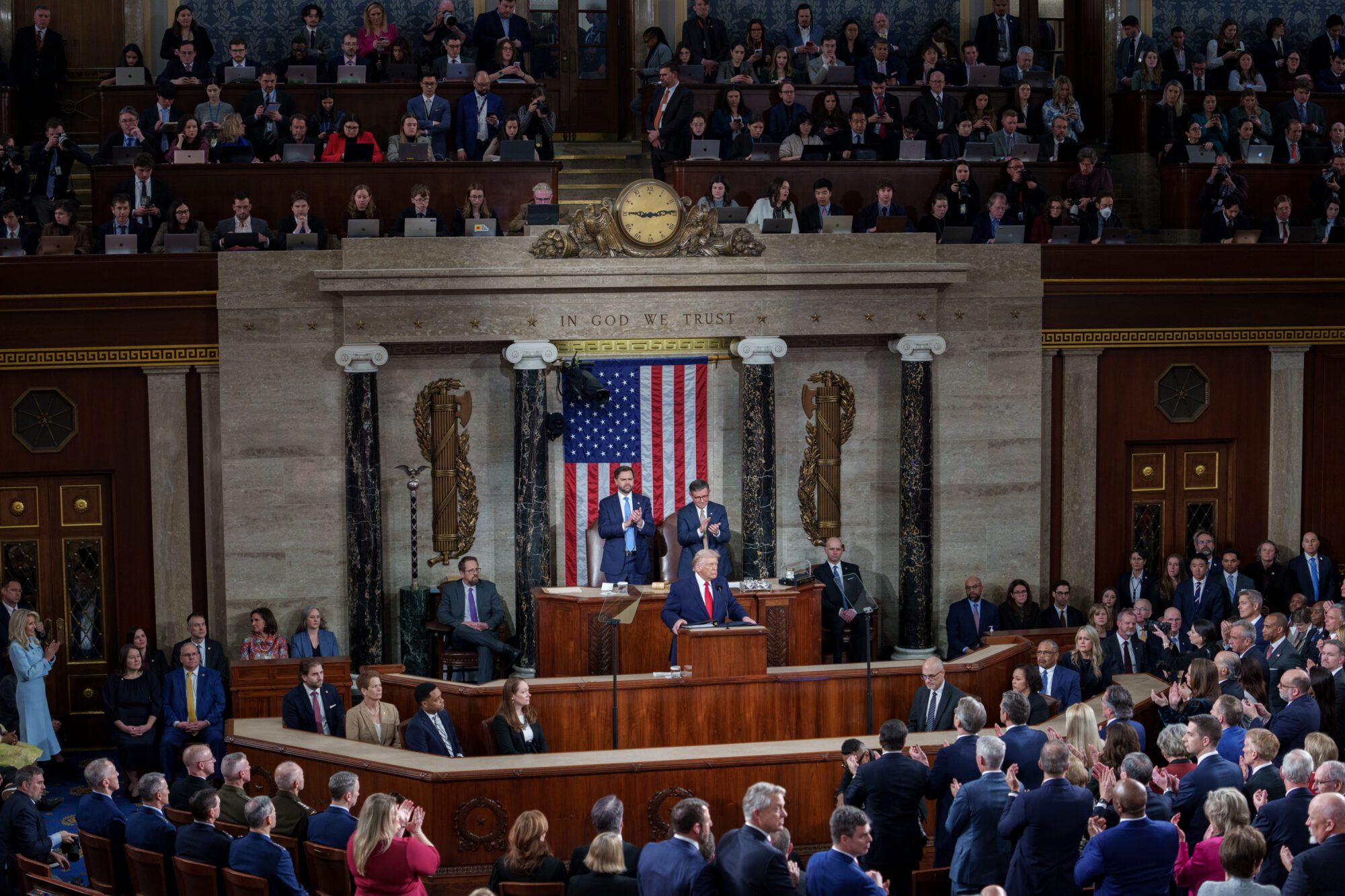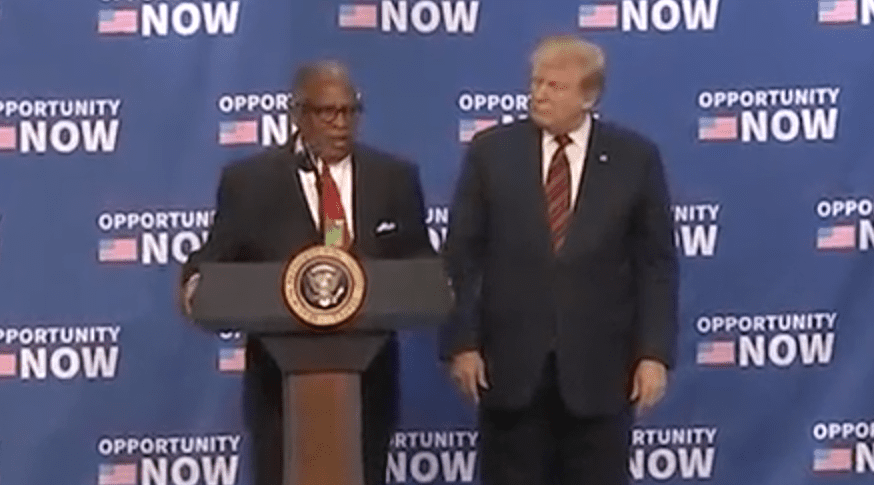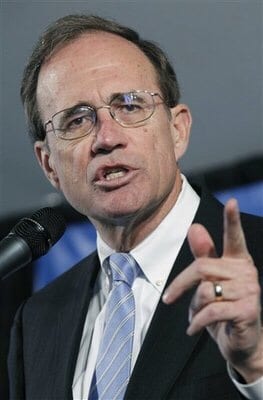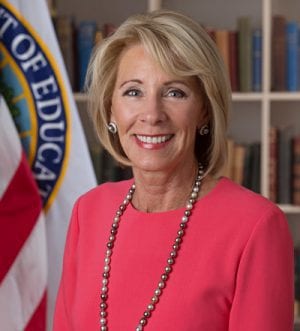
U.S. Secretary of Education Betsy DeVos issued an updated guidance on constitutionally protected prayer in public elementary and secondary schools. The guidance has not been updated since 2003, when it was first issued.
DeVos noted in a letter to state school officials, that although the law requires the U.S. Department of Education to provide updated guidance regularly according to Section 8524(a) of the Elementary and Secondary Education Act of 1965 (ESEA), 20 U.S.C. § 7904(a), an update has not been given since 2003 when it was first issued.
“Our updated guidance covers topics such as prayer during non-instructional time, accommodation of prayer during instructional time, prayer at graduation, moments of silence, the gathering of religious student groups for prayer, and the rights of teachers and other school employees,” DeVos wrote.
Key points of interest for the public as outlined in the U.S. Department of Education’s “Guidance on Constitutionally Protected Prayer and Religious Expression” in public schools include:
Prayer During Non-instructional Time
“Students may pray when not engaged in school activities or instruction, subject to the same rules designed to prevent material disruption of the educational program that are applied to other privately initiated expressive activities.”
Organized Prayer Groups and Activities
“Students may organize prayer groups, religious clubs, and “see you at the pole” gatherings before school to the same extent that students are permitted to organize other noncurricular student activities groups. Such groups must be given the same access to school facilities for assembling as is given to other noncurricular groups, without discrimination because of the religious perspective of their expression. School authorities possess substantial discretion concerning whether to permit the use of school media for student advertising or announcements regarding noncurricular activities. However, where student groups that meet for nonreligious activities are permitted to advertise or announce their meetings—for example, by advertising in a student newspaper, making announcements on a student activities bulletin board or public address system, or handing out leaflets—school authorities may not discriminate against groups who meet to engage in religious expression such as prayer.”
Teachers, Administrators, and Other School Employees
“When acting in their official capacities as representatives of the State, teachers, school administrators, and other school employees are prohibited by the First Amendment from encouraging or discouraging prayer, and from actively participating in such activity with students. Teachers, however, may take part in religious activities where the overall context makes clear that they are not participating in their official capacities.”
Student Assemblies and Noncurricular Events
“Student speakers at student assemblies and noncurricular activities such as sporting events may not be selected on a basis that either favors or disfavors religious perspectives. Where student speakers are selected on the basis of genuinely content-neutral, evenhanded criteria and retain primary control over the content of their expression, that expression is not attributable to the school and therefore may not be restricted because of its religious (or anti-religious) content, and may include prayer. By contrast, where school officials determine or substantially control the content of what is expressed, such speech is attributable to the school and may not include prayer or other specifically religious (or anti-religious) content.”
The full guidance as provided by the U.S. Department of Education can be found below.
USDept of Ed – Updated Prayer Guidance on Prayer in Schools – January 2020 by yallpolitics on Scribd

